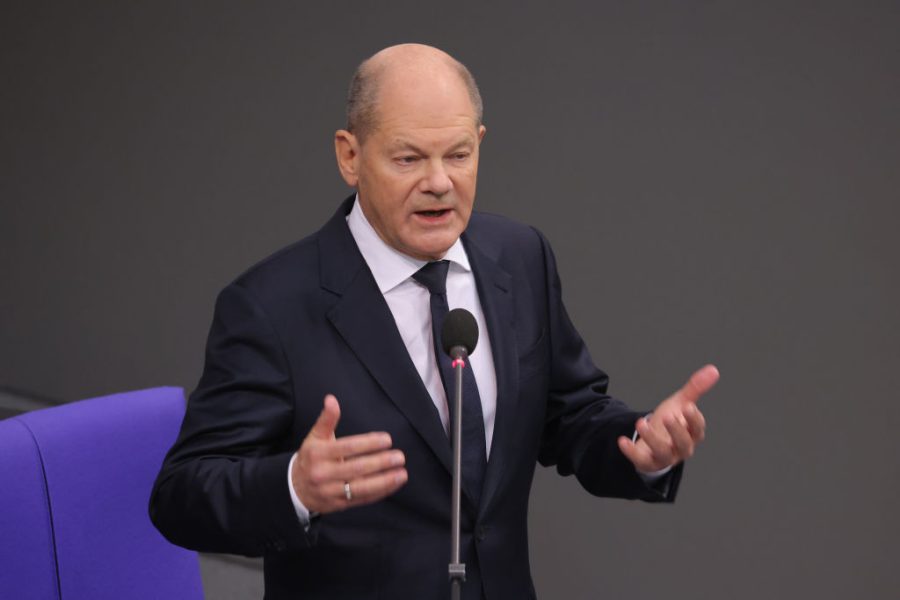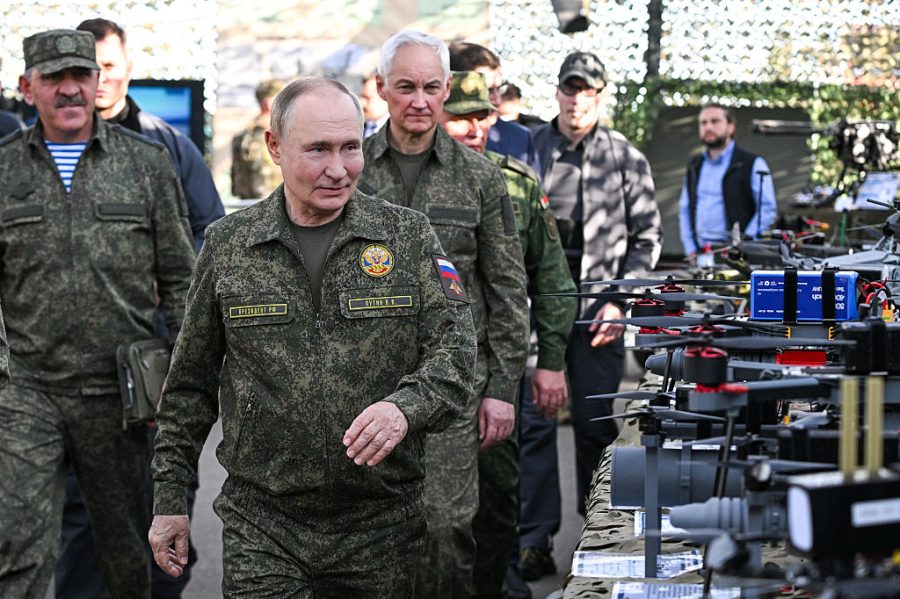Three years ago today, Olaf Scholz was sworn in as Germany’s chancellor. He had narrowly won the election by presenting himself as Angela Merkel’s natural successor. Appearing as the continuity candidate was good enough to clinch it in 2021, but Scholz is unlikely to pull that off again in Germany’s snap election, expected to be held on 23 February next year.
Scholz’s Social Democratic party (SPD) appears to have reached a nadir. Polls give it 15 or 16 per cent of the vote share, third place behind the centre-right CDU/CSU in first place and the far-right Alternative für Deutschland (AfD) in second. You’d have to go back to the 19th century to see a worse result for the SPD, Germany’s oldest party. It would be a disaster for them should it become a political reality at the ballot box.
Trying to ride a wave of Merkel nostalgia isn’t going to work this time around
Yet Scholz seems confident that he can turn things around. ‘Some may have written us off already,’ he defiantly told a party conference last weekend. ‘Don’t listen to them! They were wrong the last time. They are wrong now.’ He was alluding to the fact that the SPD had similar polling figures in May 2021 but went on to win the election with him at the helm that September.
Many Social Democrats (including Scholz himself) are desperate to believe in the possibility of another election fairytale. What should have been a crisis meeting last weekend was dubbed a Wahlsiegkonferenz – ‘election victory conference’ – encapsulating perfectly the gulf between the party’s self-image and its public perception. Scholz’s pep talk was met with a standing ovation from the packed hall of supporters. As the German weekly Die Zeit put it, ‘the SPD is capable of whipping itself into euphoria like no other party.’
But the veneer of jubilation is thin for the party. Much has changed in the last three years, not least Scholz’s own standing. In a recent survey, only one in five people judged him to be a good candidate for chancellor – that put him in fifth place behind people from his own party, the CDU/CSU, the Greens and the AfD.
A poll among SPD members even suggested that only a third of them wanted Scholz to lead the party into the next election. The question as to whether he might be replaced by defence minister Boris Pistorius, who has topped popularity rankings for months now, was wide open until Pistorius withdrew from the unspoken contest in late November. The display of unity at the SPD conference last week papered over those cracks with impressive zeal.
More important than internal SPD rifts is the fact that Germany is no longer the country it was in 2021. Russia’s invasion of Ukraine in February 2022, shortly after Scholz took office, triggered an energy crisis alongside one of identity. Germans now pay the highest electricity prices in Europe, and the country is deeply divided about the war in Ukraine with one recent survey suggesting that half of Germans want no further weapon deliveries for Kyiv.
There has also been a huge surge of refugees and irregular migrants into the country since Scholz took office. Alongside the 1.2 million Ukrainian refugees, over 800,000 asylum claims were registered over the last three years. Now, nearly half of welfare recipients in Germany are non-Germans. The social, political and economic strain of this is so large that immigration consistently ranks as the biggest concern of voters.
Of course, Scholz can’t be held solely responsible for these issues. Neither is he entirely to blame for the economic trouble Germany is in as Europe’s largest economy stares down the barrel of its first two-year recession in more than two decades. Many of Germany’s woes are caused by structural issues that require complex, long-term solutions. But the fact remains that these things happened or got worse under him. Compared to 2021, Germans now live in a country where they fear economic decline, war and social conflict.
Presenting as the sensible continuity candidate will be a hard sell for the Chancellor under the circumstances. He forgets that it was a hard sell in 2021 too. Far from the glowing, personal victory, he presents it as, his party only received a quarter of the vote, which was just about enough to allow it to clinch victory over the CDU/CSU by 1.5 per cent. It was the worst result of any election winner in Germany’s post-war history.
Three years ago, a vote for Scholz was also often more of a vote against the deeply unpopular Armin Laschet who had replaced Angela Merkel as the CDU/CSU candidate. A survey taken just before the election suggested that only 12 per cent of people wanted Laschet to be chancellor. He was so unpopular that more conservative voters rooted for Scholz than for him.
This opened an opportunity for Scholz to present himself as Merkel’s heir – despite standing for a different party. Their parties were in a grand coalition at the time and Scholz was Merkel’s vice chancellor. He went as far as posing for a photograph with his fingertips pressed together in her trademark gesture, the Merkel rhombus.
Trying to ride a wave of Merkel nostalgia isn’t going to work this time around, particularly when her legacy has come under such fire. Her freshly released memoirs have been widely criticised for not showing much self-reflection on the same issues Scholz is facing: immigration, energy, Russia and the sluggish economy.
All Scholz can point to is his own record in office: three years most people will remember for a sense of crisis and the failure of Scholz’s dysfunctional coalition to address their concerns.
The one glimmer of hope is that his rival, Friedrich Merz of the CDU/CSU, is also not particularly popular. A survey released earlier this week asking people who they would vote for if they could elect the chancellor directly suggested that Scholz is catching up with him. But Merz is still leading. He’s not anywhere near as unpopular as Laschet, and 2025 isn’t 2021. As it stands, the polls indicate that the CDU/CSU would gain a third of the vote, twice as much as the SPD.
Germans want change – a message that ruling parties always find difficult to deliver. If Scholz is to turn things around as he did three years ago, it’ll take a lot more than standing ovations and wishful thinking to do so.








Comments